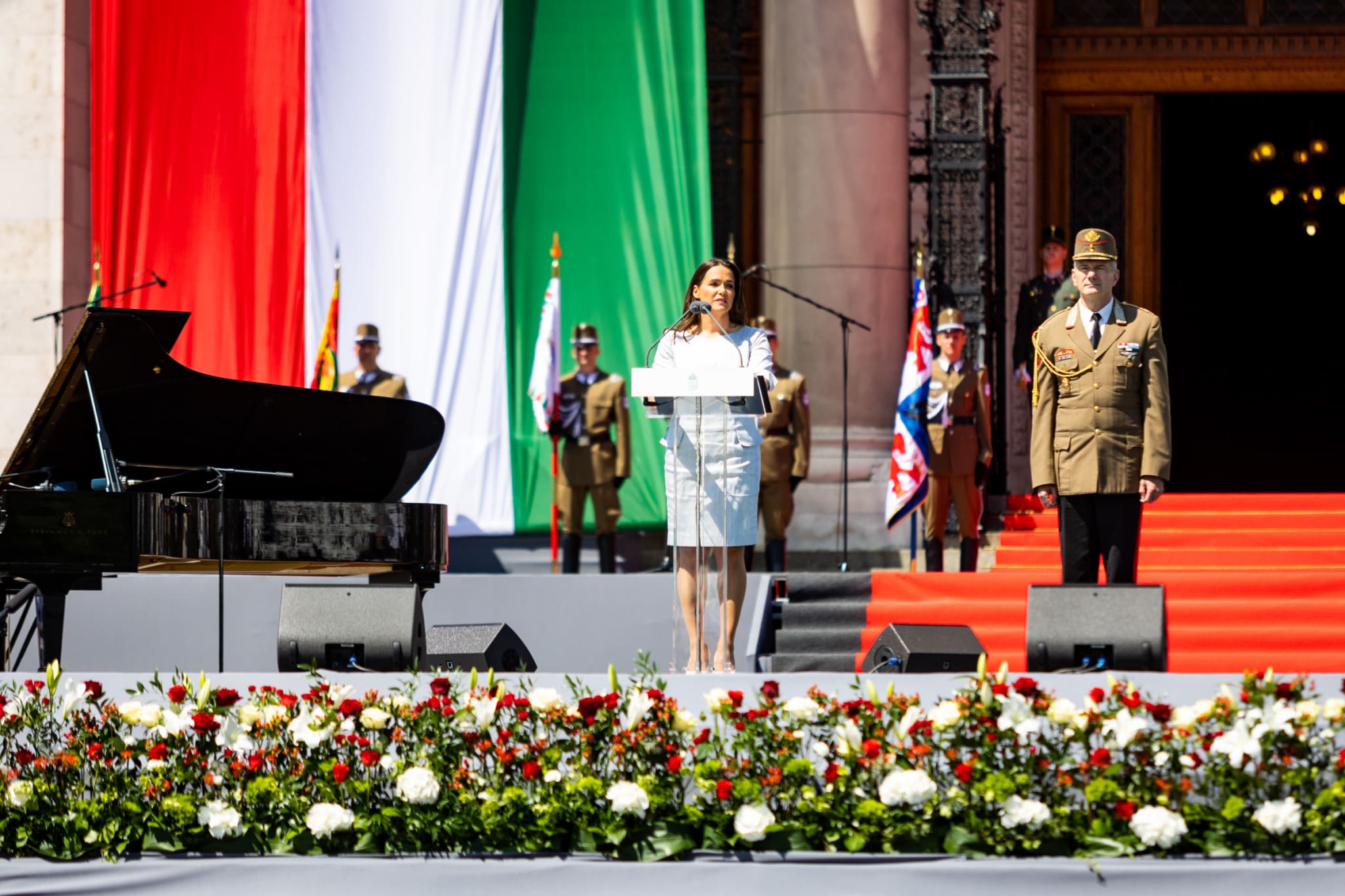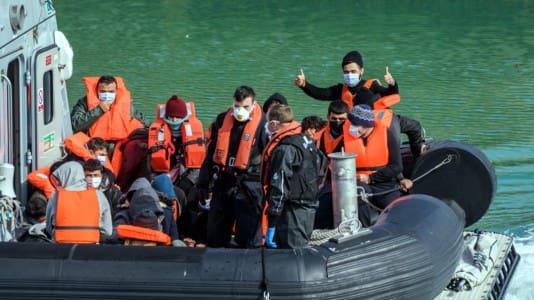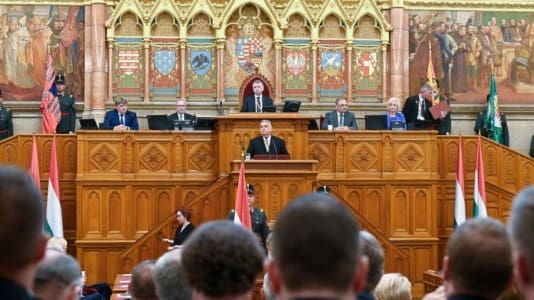On Saturday, May 14, Katalin Novák became Hungary’s first female president. Her gender, however, took a backseat during her inauguration speech held in front of the Houses of Parliament in Budapest, which was widely hailed as a conservative manifesto. However, more relevant for the international debate on the Ukraine war were her ten points, in which she took upon herself to counter false reporting regarding the Hungarian stance on the conflict.
Hungary has been accused of playing into the hands of the Russian regime because of its government’s stance on weapons exports, and its refusal to budge on the question of sanctioning Russian oil and gas. Novák took the opportunity to set the record straight on the contentious issues with her ten points reading as follows:
- We condemn Putin’s aggression, an armed attack on a sovereign state.
- We will forever say no to all efforts to restore the Soviet Union.
- We Hungarians want peace at home and in the neighboring countries. We want to win the peace, not the war.
- This is not our war, but it is also fought against us, peace-loving Hungarians who respect each other, therefore we demand the investigation and punishment of war crimes.
- We are not neutral, we are on the side of innocent victims and the truth. We are fulfilling our obligations as an alliance between the EU and NATO, and if the Hungarian interest so demands, we will say no.
- Under no circumstances are we willing to relinquish our sovereignty, which we have fought for many times, and we are constantly developing our defense forces.
- We support Ukraine’s accession to the EU community.
- We are ready for sacrifices for peace and we will not hinder the sacrifice of our allies, but we will not agree to decisions that require more sacrifice from the Hungarians than the pain they cause to the Russian aggressor.
- We are happy to mediate between the parties to the war.
- We insist on ensuring the rights of Hungarians living in Ukraine, as before, now and after.
The new president continued by thanking Hungarians for their efforts to alleviate the suffering of those fleeing the war, and highlighted the fact that some 700,000 war refugees have already crossed to Hungary from Ukraine, and that millions of euros have been spent to help them.
[pp id=35655]
If the fact that Hungary features prominently on the Kremlin’s official list of “unfriendly” countries was not enough to counter any misconceptions about a secret alliance between Russia and Hungary, Novák’s condemnation of “Putin’s aggression,” her resounding rejection of a new Soviet Union, and crucially, the Hungarian government’s expressed willingness to support Ukraine’s accession to the EU, should silence most critics.
The Hungarian endorsement of accession talks between the EU and Ukraine is a major compromise on the side of Budapest, as the government of Viktor Orbán, up until the February invasion, insisted on Kyiv reversing all of its anti-democratic language laws that have in practice banned the use of minority languages and culture. Verbal and physical attacks against the Hungarian minority numbering 150,000 in the Transcarpathian region have been frequent in Ukraine, and Budapest made it clear that it will block any NATO or EU membership talks for Ukraine until these grievances are rectified. Budapest stood by its major concession even after Ukrainian politicians directly interfered with the Hungarian elections in April, siding with the increasingly unpopular opposition.
[pp id=33755]
There are no signs, however, from Kyiv that the government of Volodymyr Zelensky would have softened its hostile rhetoric against Hungary in response to Hungary softening its own stance. No one is under the illusion that the global left would be interested in revising its biased attacks against the government of Viktor Orbán either. However, the new president’s speech will help to expose these as ideologically motivated for those who are willing to distinguish between factual policies and mere propaganda.
Furthermore, as a sign of making amends with Hungary’s closest regional ally Poland, on May 17, Novák will travel to Warsaw to meet with Polish President Andrzej Duda. The Poles might just be the one client that her inaugural speech could have made a difference to in the lately somewhat strained relations between the two friendly nations.






